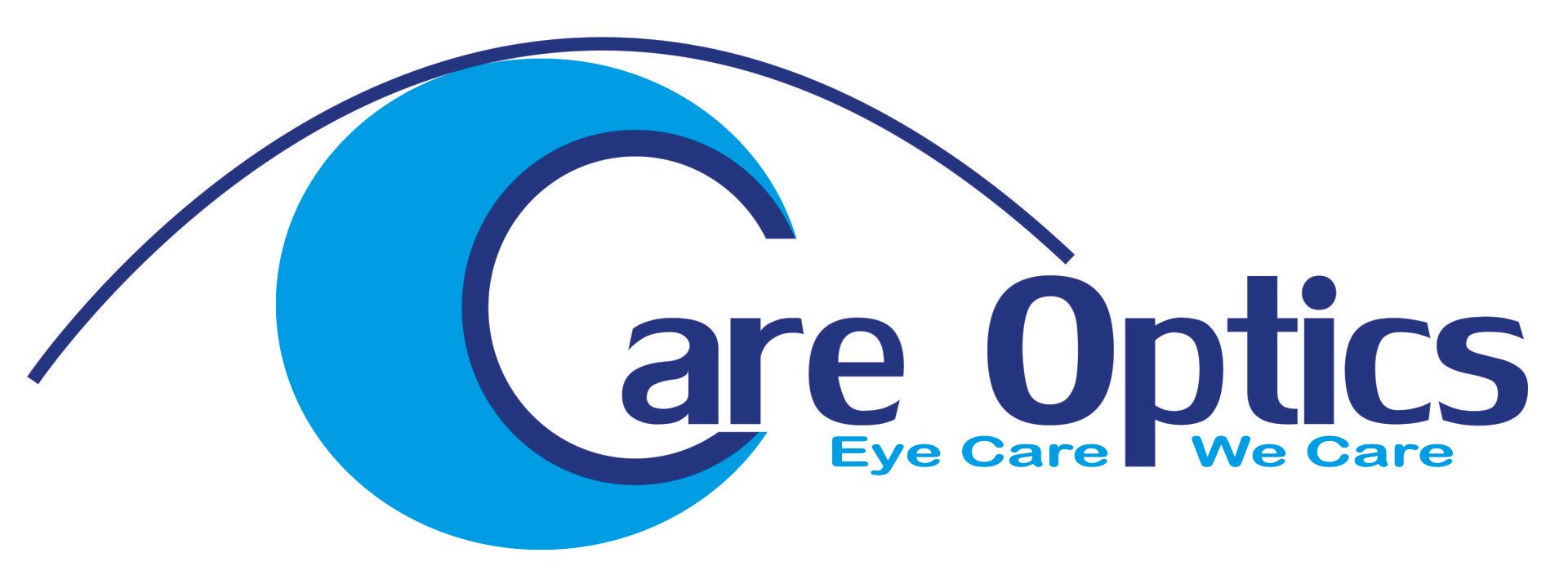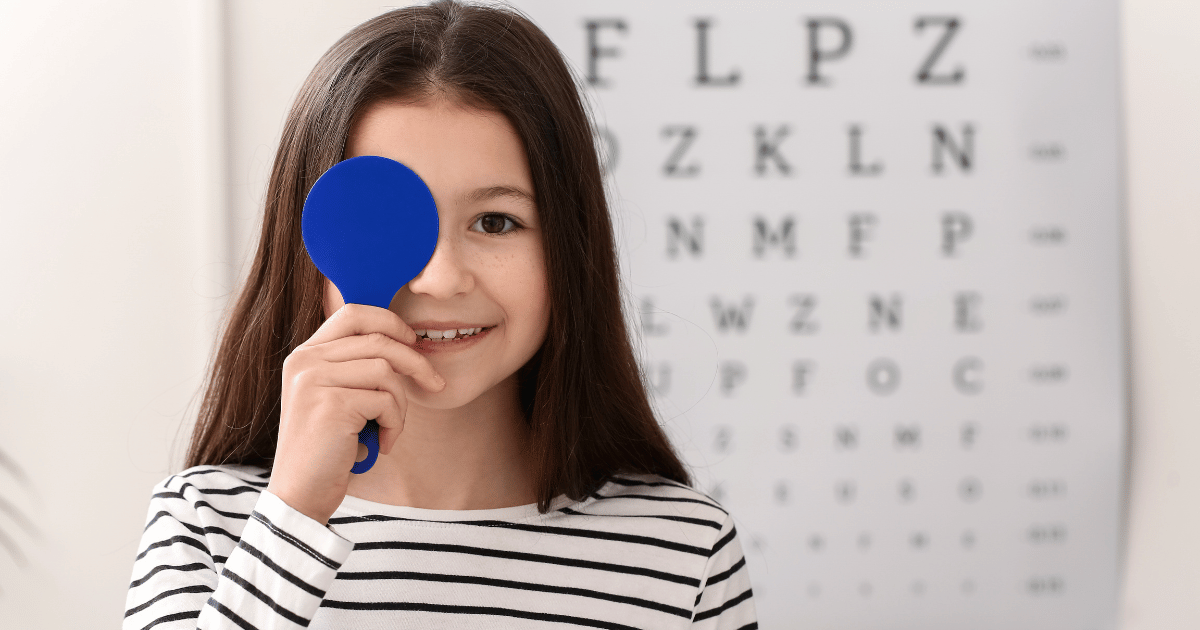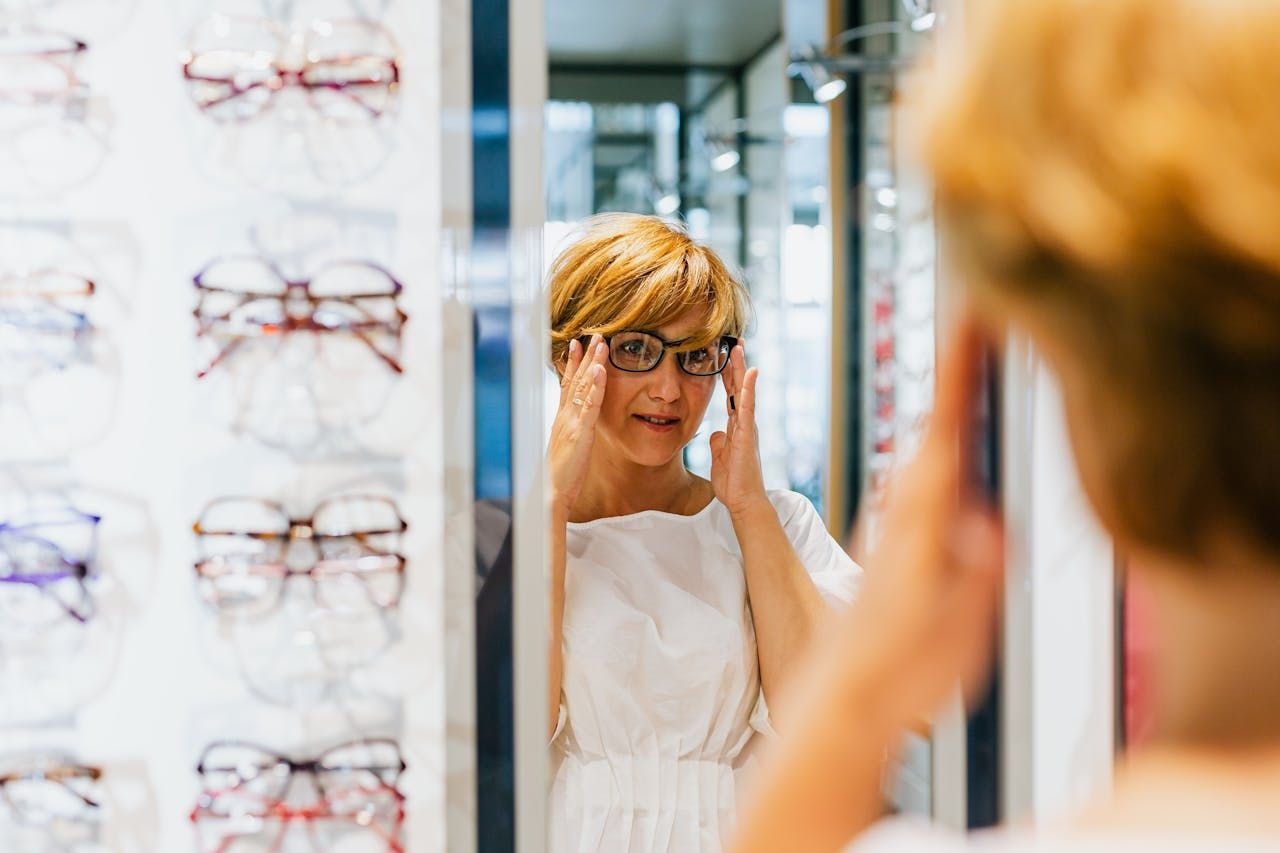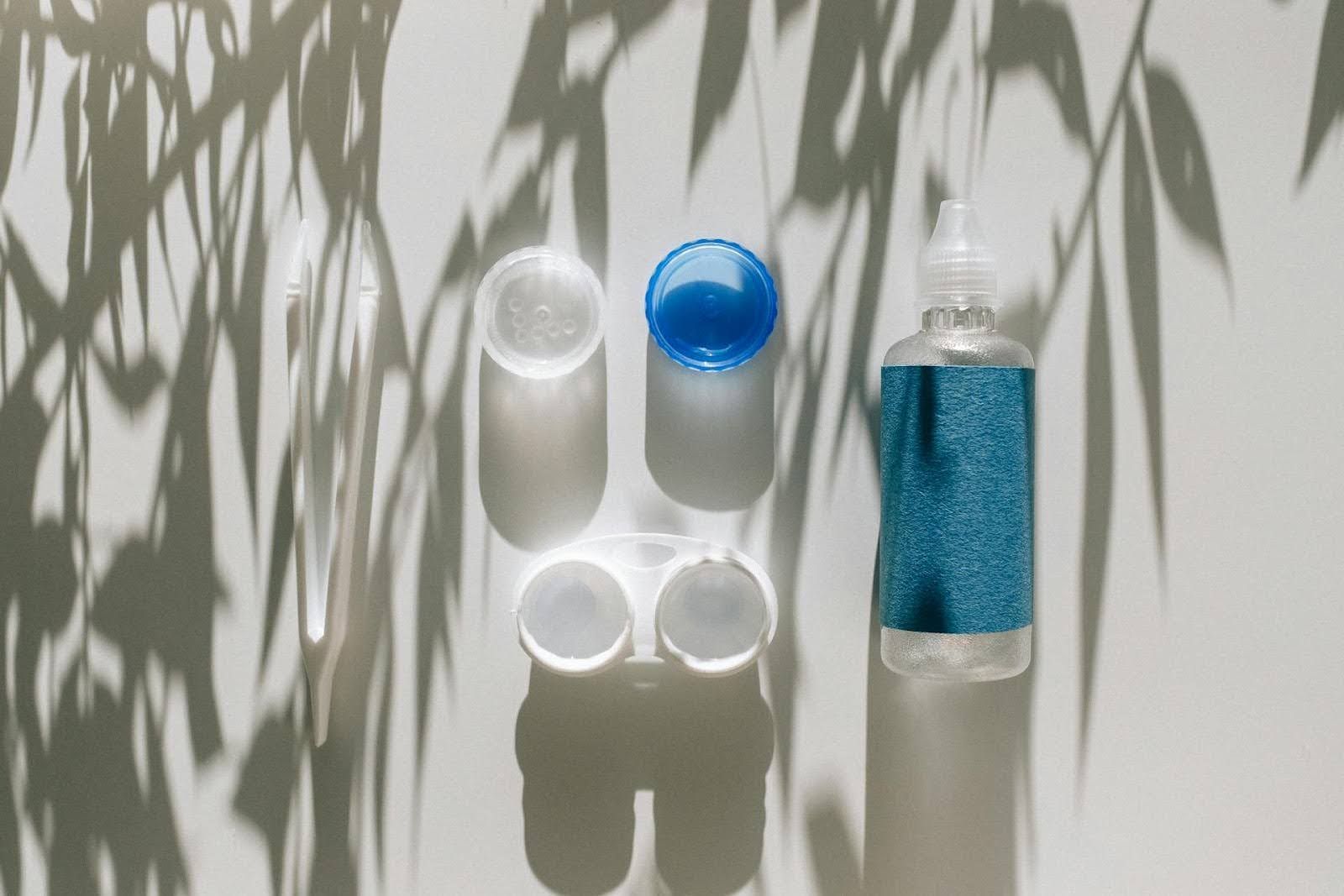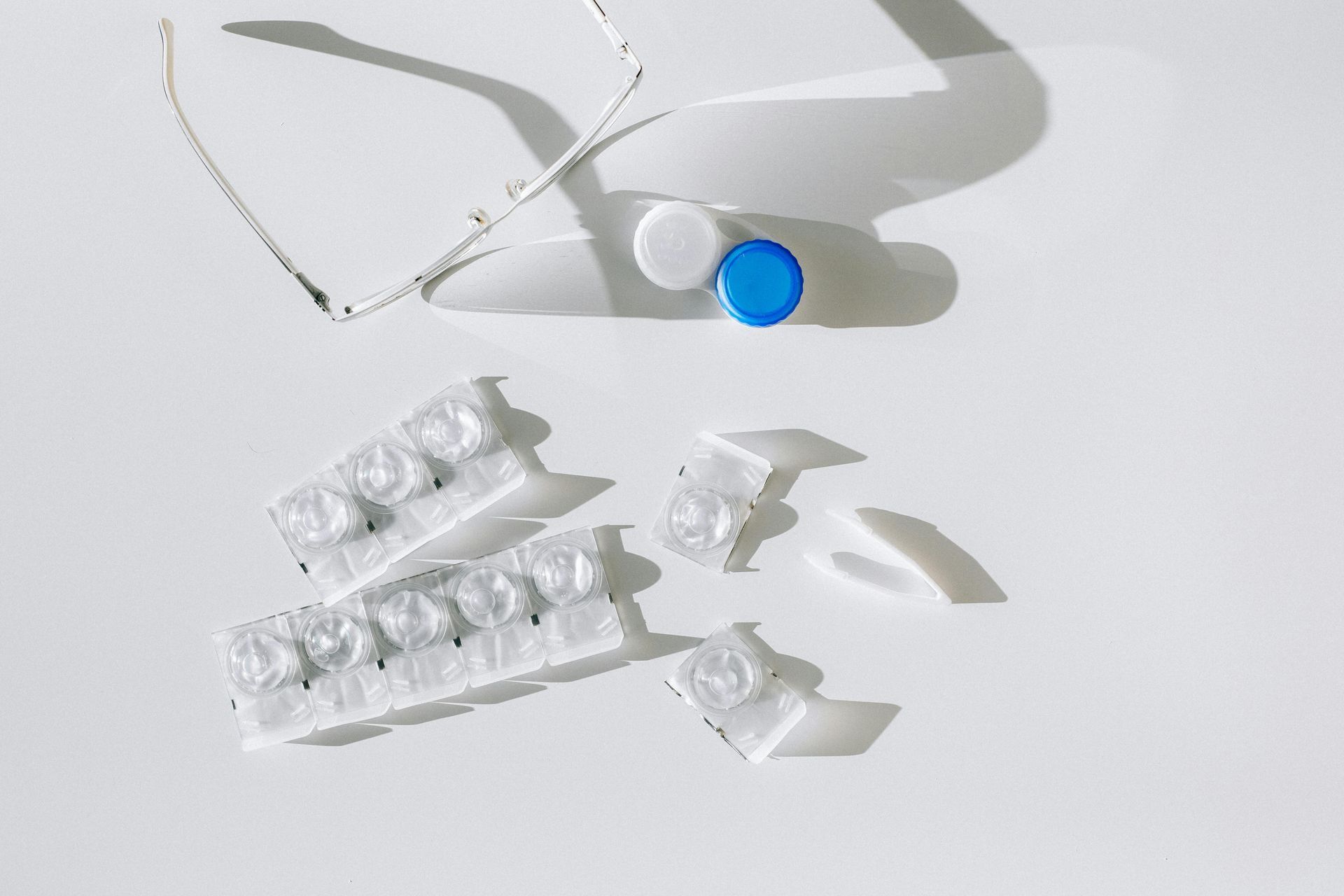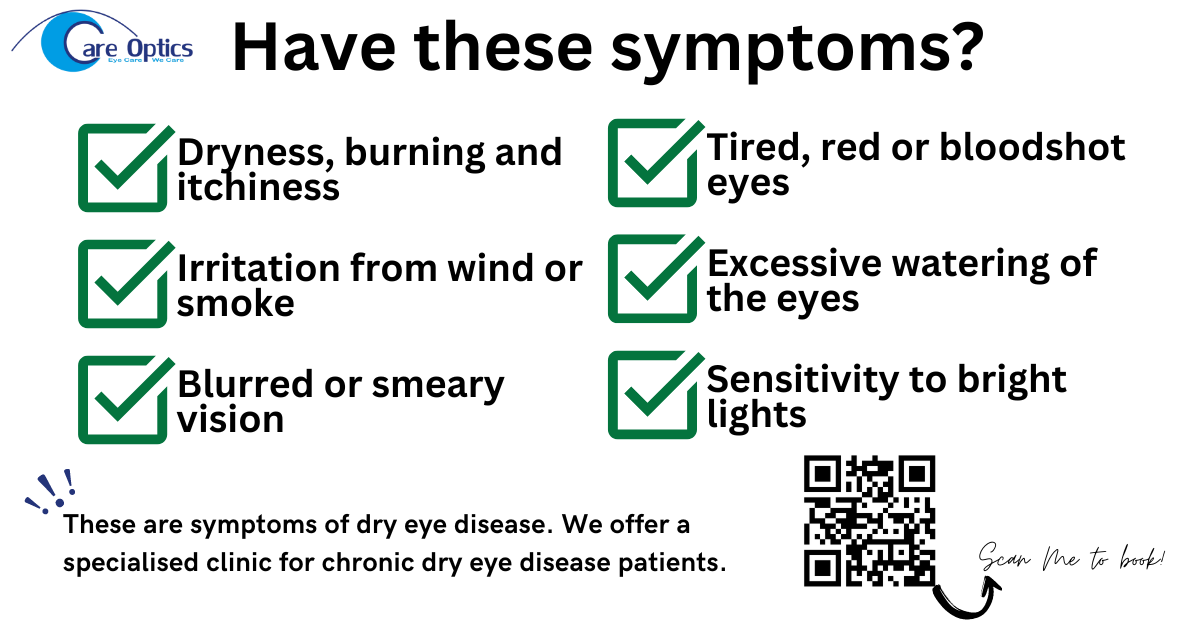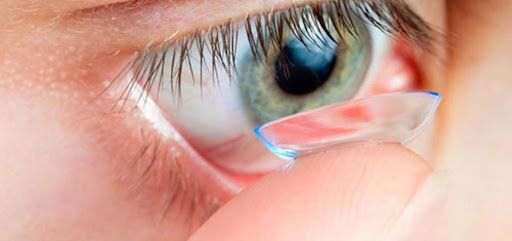Blepharitis
- By Monica Coelho
- •
- 10 Jan, 2023
- •
Condition, Symptoms & Causes
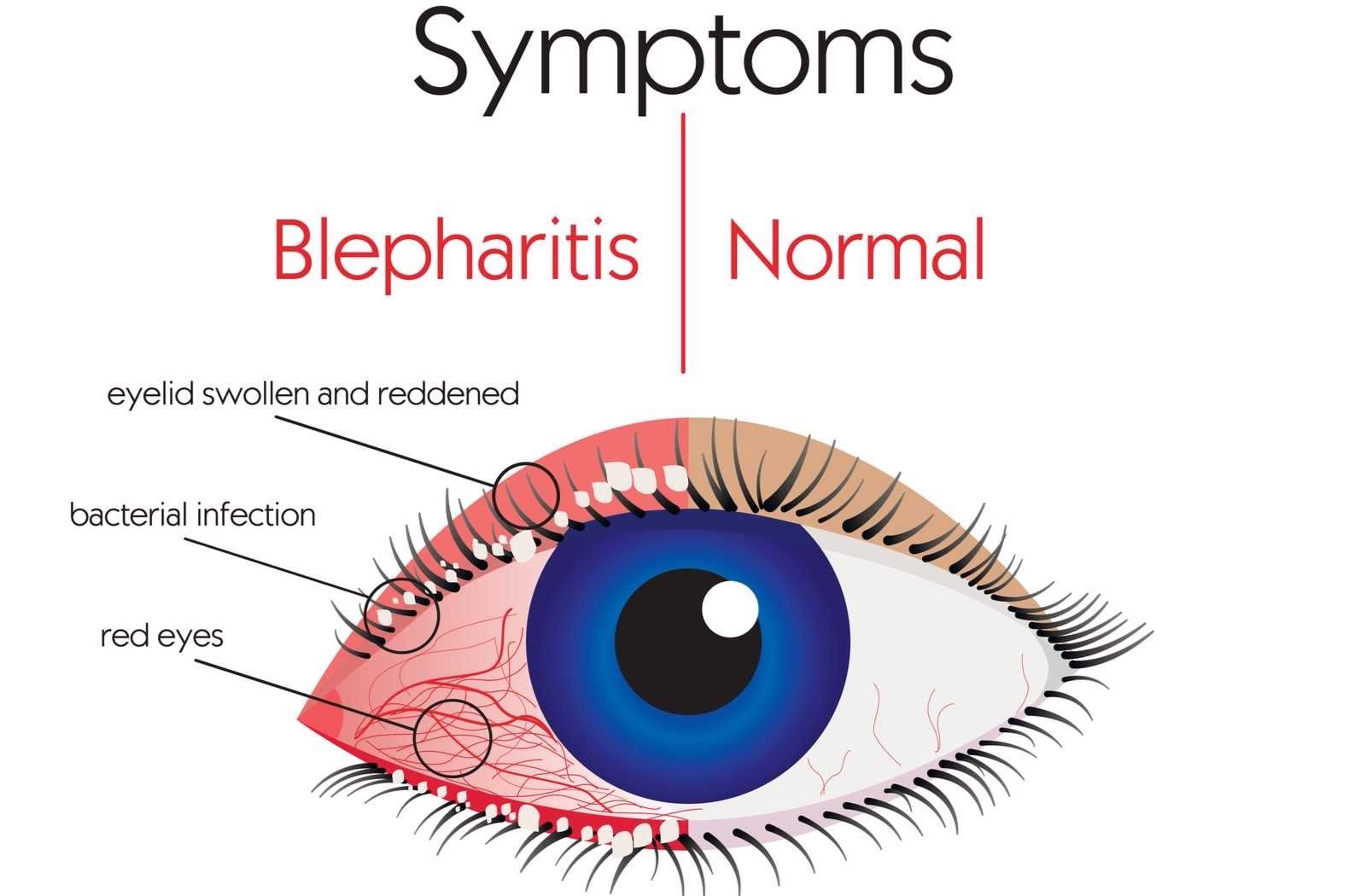
Blepharitis is an inflammation of the oil glands present in your eyelids, and it's a common condition that is usually easily treated. If left untreated though, it might lead to more serious complications like cysts or conjunctivitis.
Usually the GP or your Optometrist/Ophthalmologist would be able to diagnose it by using a magnifying device to look at the edges of your eyelids and how the glands look like, by checking if the eyes are producing enough tears & by checking the texture and how healthy is the skin surrounding your eyes.
Symptoms
Symptoms usually include:
- Sore Eyelids;
- Dry eyes;
- Itchy Eyes;
- Gritty feeling;
- Red eyes;
- Watery eyes;
- Blurry vision;
- Sensitivity to bright lights;
- Red and/or swollen eyelids;
- Presence of flakes/crusts around the roots of your eyelashes;
- Sticky eyelashes - specially in the morning when you wake up.
Causes:
- Skin conditions (like seborrheic dermatitis, rosacea or eczema);
- Excess of bacteria;
- Hormone problems/hormonal imbalance;
- Blocked eyelid oil glands;
- Allergies;
- Viral infections;
- Mites (insect-like organisms, which can cause irritation to humans).
Treatment:
- Artificial tears for red, itchy, gritty or dry eyes;
- Special wipes to clean the eyelids;
- Warm flannels to soften and clean the crust as well as to help with the swollen eyelids;
- Medication in some cases.
Prevention:
Unfortunately there is cure for Blepharitis, but you will be able to manage and treat it easily. If you follow a daily hygiene routine that should be enough to control the symptoms. That routine should include:
- Removing all make-up before bed;
- Making sure to clean your eyelids everyday before you go to bed, even if you don't wear any makeup;
- Be careful when applying any night moisturizers or gels, do not apply it close to your eyelids;
- Using specific eyelid wipes that you can get from your local Optician to regularly clean your eyelids properly.
Complications:
That are some complications that may occur in some cases like loss of eyelashes, clogged glands that might lead to a stye or a chalazion & scarring on your eyelids. When that happens you should let your GP or your Optometrist/Ophthalmologist know as soon as possible.
In case you are experiencing any of these symptoms or if you suffer from Blepharitis, please do not wear any contact lenses (while you have symptoms) and don't use any make-up, specially eyeliner! If you have any symptoms of Blepharitis, please make sure to book a Minor Eye Condition Service with your local Optician... you can even do it with us if your GP is in the area! So if you have any queries regarding this condition or if you want to book an appointment, please contact us. You will be more than happy to arrange a time for you.
Keep in Mind:
Care Optics - Eye Care, We Care!
Usually the GP or your Optometrist/Ophthalmologist would be able to diagnose it by using a magnifying device to look at the edges of your eyelids and how the glands look like, by checking if the eyes are producing enough tears & by checking the texture and how healthy is the skin surrounding your eyes.
Symptoms
Symptoms usually include:
- Sore Eyelids;
- Dry eyes;
- Itchy Eyes;
- Gritty feeling;
- Red eyes;
- Watery eyes;
- Blurry vision;
- Sensitivity to bright lights;
- Red and/or swollen eyelids;
- Presence of flakes/crusts around the roots of your eyelashes;
- Sticky eyelashes - specially in the morning when you wake up.
Causes:
- Skin conditions (like seborrheic dermatitis, rosacea or eczema);
- Excess of bacteria;
- Hormone problems/hormonal imbalance;
- Blocked eyelid oil glands;
- Allergies;
- Viral infections;
- Mites (insect-like organisms, which can cause irritation to humans).
Treatment:
- Artificial tears for red, itchy, gritty or dry eyes;
- Special wipes to clean the eyelids;
- Warm flannels to soften and clean the crust as well as to help with the swollen eyelids;
- Medication in some cases.
Prevention:
Unfortunately there is cure for Blepharitis, but you will be able to manage and treat it easily. If you follow a daily hygiene routine that should be enough to control the symptoms. That routine should include:
- Removing all make-up before bed;
- Making sure to clean your eyelids everyday before you go to bed, even if you don't wear any makeup;
- Be careful when applying any night moisturizers or gels, do not apply it close to your eyelids;
- Using specific eyelid wipes that you can get from your local Optician to regularly clean your eyelids properly.
Complications:
That are some complications that may occur in some cases like loss of eyelashes, clogged glands that might lead to a stye or a chalazion & scarring on your eyelids. When that happens you should let your GP or your Optometrist/Ophthalmologist know as soon as possible.
In case you are experiencing any of these symptoms or if you suffer from Blepharitis, please do not wear any contact lenses (while you have symptoms) and don't use any make-up, specially eyeliner! If you have any symptoms of Blepharitis, please make sure to book a Minor Eye Condition Service with your local Optician... you can even do it with us if your GP is in the area! So if you have any queries regarding this condition or if you want to book an appointment, please contact us. You will be more than happy to arrange a time for you.
Keep in Mind:
Care Optics - Eye Care, We Care!
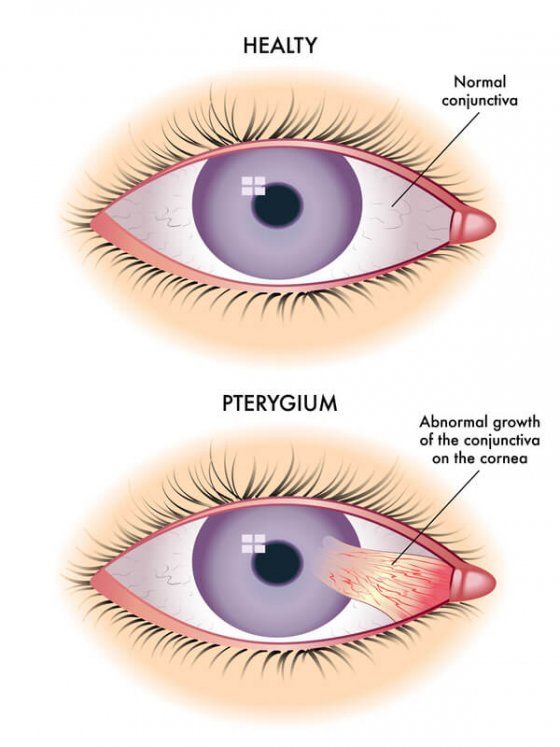
Also known as "Surfer's Eye", Pterygium is an elevated, wedged-shaped growth from the lining of the eyelid onto the cornea. Although is benign, the growth itself can permanently disfigure the eye, reduce significantly the eyesight or even cause blindness. It became known as "Surfer's eye" because it is usually a consequence of being exposed to bright sun for long hours, specially by the water or snow - which reflects the UV rays to your eyes.
Causes
As written above, UV exposure seems to be one of the main reasons for Pterygium development, but wind and dust can also cause it as this leads to Dry Eye Disease, which by consequence will lead to this condition. Genetics may also play an important part, as some people seem to be more at risk than others.
Signs & Symptoms
Pterygium usually appears on the side of your eye that is closest to the nose, but it can also appear on the other sometimes. It is common to have it in one eye only, although sometimes it may appear on both eyes.
There are people who don't experience any symptoms or require treatment in the beginning, but as the growth develops, there can be redness, gritty, itchy or burning sensation, the eyes can become irritated and even swollen.
When the Pterygium starts to invade the cornea, it distorts the shape of the front of the eye, causing the curve of the cornea to change, leading then to refractive errors (Astigmatism in most cases).
Treatment
The treatment depends on the size of the Pterygium itself. If it's just a small growth, your Optometrist/Ophthalmologist can advise the patient on lubricants (eye drops or gels) to temporary reduce symptoms like redness, swelling, itchy or gritty felling.
If the Pterygium is more advanced, the only option is then surgery.
How to avoid it
As previously said, UV radiation and exposure seems to be one of the main reason leading to Pterygium. For that you have the perfect solution that is available for everyone - sunglasses . A good pair of sunglasses will filter the UV rays, giving you a sharper vision but also protecting you from conditions like Pterygium, Cataracts, Glaucoma, etc. Make sure to buy your sunglasses from a Optician instead of a shop non-related to eye care. A good pair of sunglasses should have UVA, UVB and UVC protection, and usually those shops will only have one of those protections - or even none.
We remind you that if you have any of these symptoms or any other, if you need to book an appointment or if you have any queries, please contact us over phone or email. We will be very happy to help you.
Keep in mind: At Care Optics - Eye Care, We Care
Causes
As written above, UV exposure seems to be one of the main reasons for Pterygium development, but wind and dust can also cause it as this leads to Dry Eye Disease, which by consequence will lead to this condition. Genetics may also play an important part, as some people seem to be more at risk than others.
Signs & Symptoms
Pterygium usually appears on the side of your eye that is closest to the nose, but it can also appear on the other sometimes. It is common to have it in one eye only, although sometimes it may appear on both eyes.
There are people who don't experience any symptoms or require treatment in the beginning, but as the growth develops, there can be redness, gritty, itchy or burning sensation, the eyes can become irritated and even swollen.
When the Pterygium starts to invade the cornea, it distorts the shape of the front of the eye, causing the curve of the cornea to change, leading then to refractive errors (Astigmatism in most cases).
Treatment
The treatment depends on the size of the Pterygium itself. If it's just a small growth, your Optometrist/Ophthalmologist can advise the patient on lubricants (eye drops or gels) to temporary reduce symptoms like redness, swelling, itchy or gritty felling.
If the Pterygium is more advanced, the only option is then surgery.
How to avoid it
As previously said, UV radiation and exposure seems to be one of the main reason leading to Pterygium. For that you have the perfect solution that is available for everyone - sunglasses . A good pair of sunglasses will filter the UV rays, giving you a sharper vision but also protecting you from conditions like Pterygium, Cataracts, Glaucoma, etc. Make sure to buy your sunglasses from a Optician instead of a shop non-related to eye care. A good pair of sunglasses should have UVA, UVB and UVC protection, and usually those shops will only have one of those protections - or even none.
We remind you that if you have any of these symptoms or any other, if you need to book an appointment or if you have any queries, please contact us over phone or email. We will be very happy to help you.
Keep in mind: At Care Optics - Eye Care, We Care

February is AMD and Low Vision Awareness Month, a crucial time to focus on eye health and early detection of vision-threatening conditions. Learn about Age-Related Macular Degeneration (AMD), low vision solutions, and how to protect your sight with expert eyecare at Care Optics in Woodford and Dagenham. Take advantage of our special offers, including 20% off eyewear every Wednesday and discounted eye exams for over-60s before 1pm. Book your appointment today and prioritise your vision health!
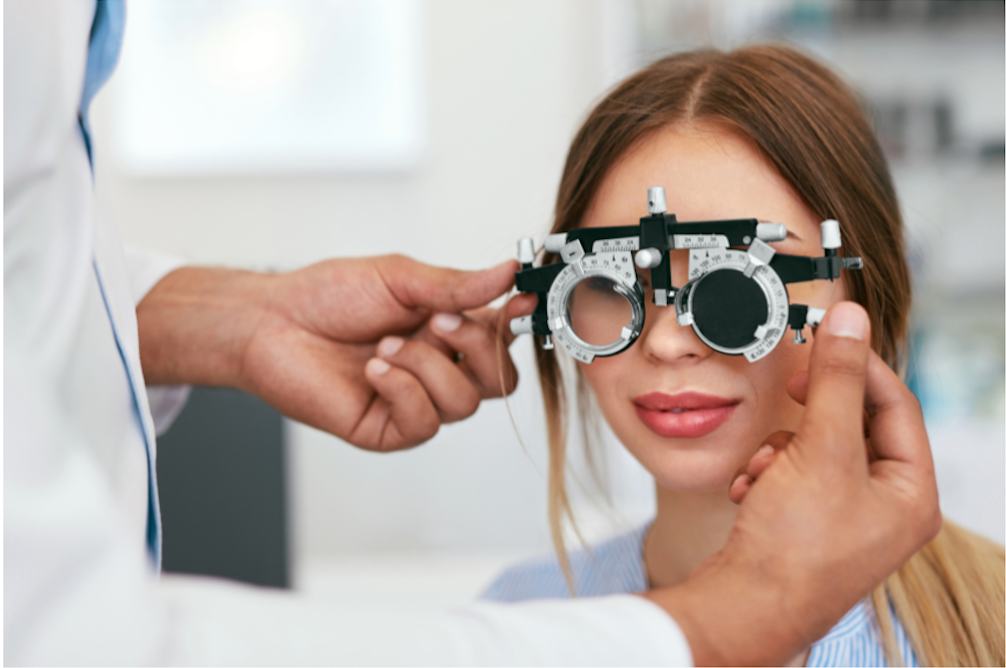
Regular eye examinations are essential for maintaining good vision and detecting potential eye health issues early. At Care Optics, we provide advanced eyecare services in Woodford and Dagenham, including OCT scans, varifocals, and myopia control. Plus, take advantage of our special offers—20% off frames, lenses, and sunglasses every Wednesday, and discounted eye exams for over-60s before 1pm. Book your appointment today for expert eye care and clear vision!
